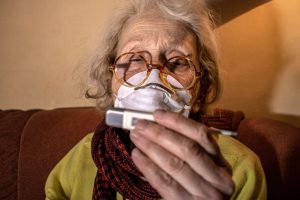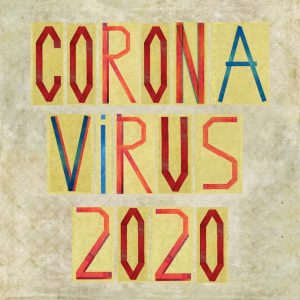It is a topic that precious few in society recognize as relevant until the life of a family member, especially a child, has been lost to the opioid epidemic that continues to sweep across America.
That reality was the focus of a meeting of parents and supporters who assembled at the Peachtree City Library on Aug. 31 for International Overdose Awareness Day.
Above, the meeting room at the Peachtree City Library on Aug. 31 was filled with residents of Fayette and Coweta counties for International Overdose Awareness Day. Photo/Ben Nelms.
The meeting room downstairs was filled beyond capacity, with far more than 100 people attending. The lives of many in the room had already been touched by the mind-numbing grief that comes from witnessing the death of a family member or friend from an opioid overdose. Those numbers, nationwide, continue to exceed the number of people who die in traffic accidents each year.
Among the numerous speakers at the meeting were Coweta County resident Pat Rudd and Fayette County resident Alan Felts, both parents of adult children who died as a result of opioids.
Coweta resident and Grief Recovery After a Substance Passing (GRASP) representative Pat Rudd noted that in one recent year there were 10 overdose deaths in Coweta County and another 22 in 2015.
And for Rudd, the reality of overdose death is personal. Her son, Tyler, died at age 20 from an overdose in 2013.
Rudd described the grief and the gut-wrenching pain that a family endures. And through GRASP, Rudd spoke of the support and sharing, and the bond, that comes when families come together in a common cause.
“And yet, it’s the club that no one wants to belong to,” she said, the emotion in her voice impossible to miss. Rudd then turned her comments to what she has learned since her son’s death. “They were more than their addictions. I felt guilty I didn’t know some of these things while he was alive.”
That comment resonated across the room and, had it been heard outside the meeting room that night, would have struck a chord deep in the heart of many across America whose lives have been touched by overdose death and whose lives have taken on a new perspective from what they have learned in its wake.
Fayette resident Alan Felts and his wife, Jean, have also learned many things about the reality of opioid overdose and the tragedy that can come with it.
Alan told the group that his step-son, Joseph Gentile, died in a single-car accident in Coweta County earlier this year. The 23-year-old had a high level of heroin in his body, Alan said.
“I’m not proud to say that I told him to grow up and take responsibility,” said Felts. “I learned the hard way that it’s a disease, whether you accept it or not.”
Among the things Felts learned from that tragic death is that, aside from conventional wisdom that so often falls short of the truth, “It’s past the time to stop judging those with drug addiction.”
Peachtree City Mayor Vanessa Fleisch in her remarks noted that overdose deaths affect vast numbers of people, both locally and across the nation. She noted that, nationwide, overdose deaths have quadrupled in the past two decades. The sheer numbers of people using opioids led Peachtree City police to carry Narcan in patrol vehicles.
And in Peachtree City, there have been 47 narcotic and opioid overdoses in the past 18 months, Fleisch said, adding that those numbers included five intentional and unintentional deaths.
Also speaking at the meeting were state Sen. Matt Brass (Newnan) and state Rep. Josh Bonner (Peachtree City).
Brass in his comments said members of both political parties understand that the opioid epidemic is real and that lives are being lost.
Far from a partisan issues, both parties are attempting to understand how to approach the epidemic, he said.
Brass emphasized that, “All your elected people need to hear your story. Every politician with a heart, when you tell your story, you’ll have their attention. Tell them who you are and build that relationship. And having something to ask for.”
Staying organized as a group will benefit the parents and family members searching for a solution to this epidemic, he said.
“There’s no party line on this. It’s a serious problem that needs solutions, regardless the party,” Brass noted.
Bonner began his remarks by recounting the story of a military veteran who came home wounded, became addicted, then overdosed and died.
“I wish I could tell you this is a unique story, but it’s not,” he said.
Beyond current laws aimed at helping stem the tide of overdose deaths, Bonner said a portion of the problem is over-prescribing medications.
“At the end of the day, this is not solely a legislative problem or a law enforcement problem. It takes the community coming together to address it head-on,” he said.
Bonner reiterated the need to have constituents tell their story to legislators and the need for residents to make themselves known to those responsible for making laws.
“It’s up to us, the living, to resolve this problem head-on,” said Bonner.
Today in America, the reality is that, like it or not and for multiple reasons, opioid addiction and opioid overdoses and deaths have gone mainstream. The opioid epidemic crosses all demographics. And as Bonner said, it is up to us, the living, to resolve the problem.










Leave a Comment
You must be logged in to post a comment.